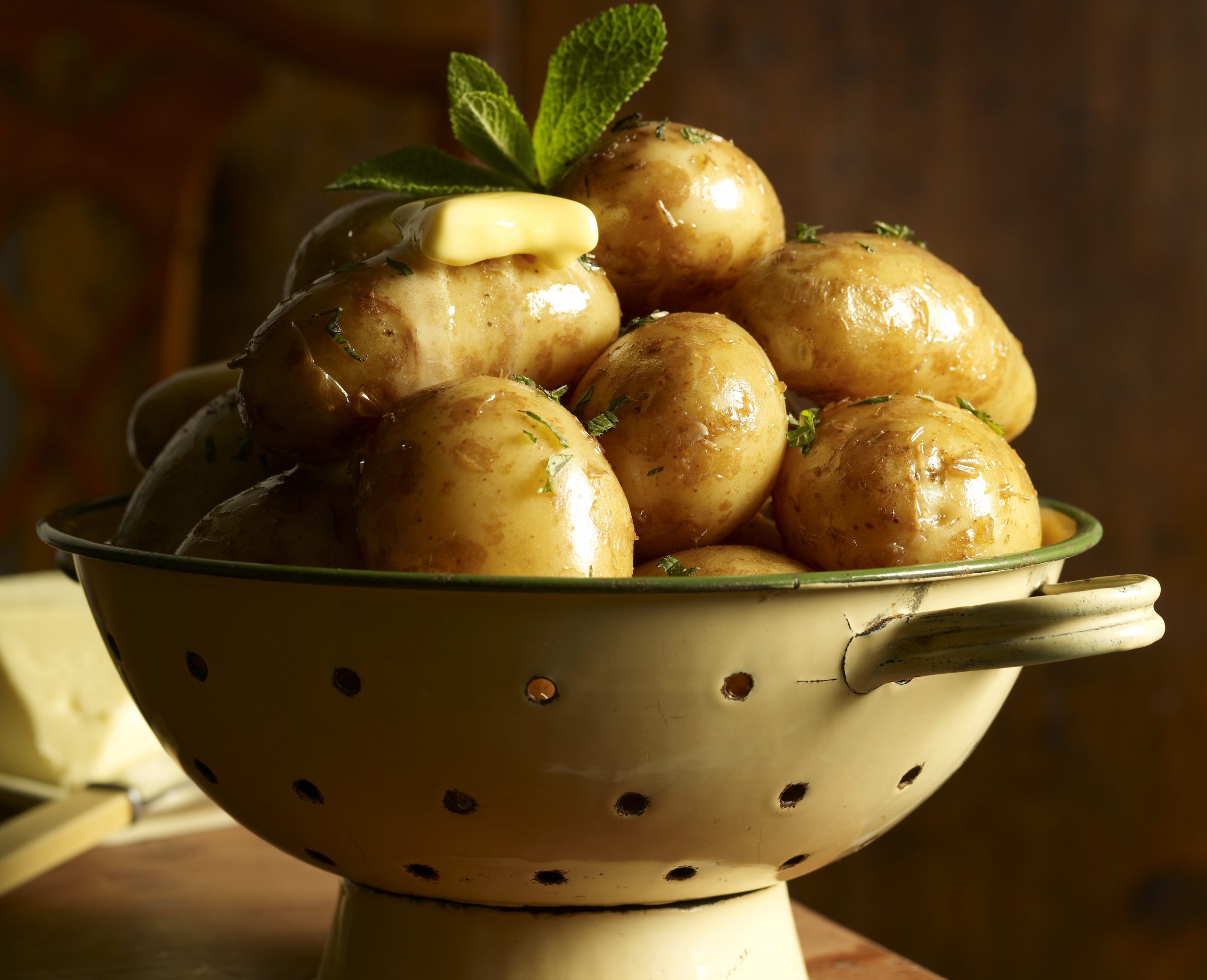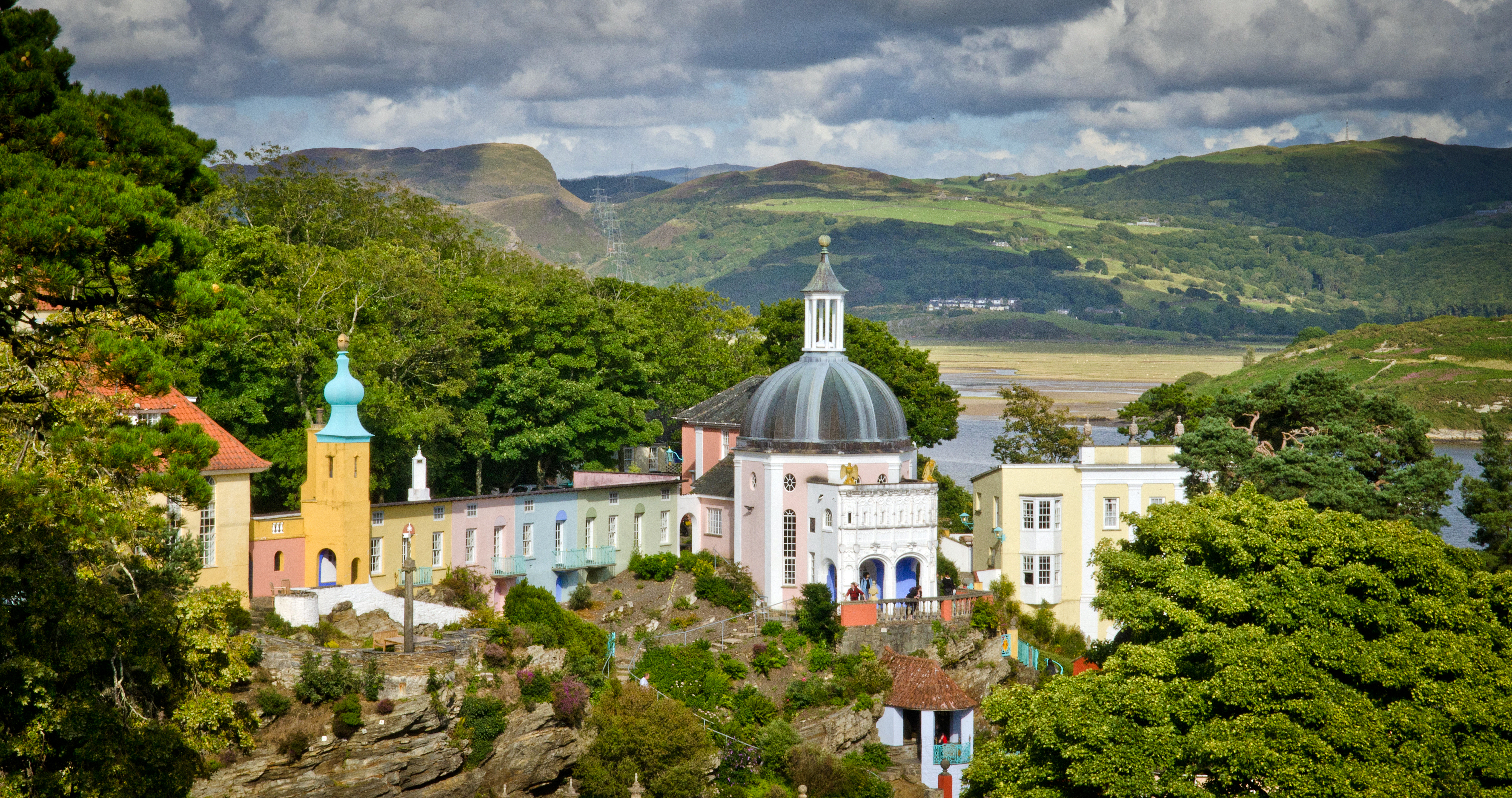Tom Parker-Bowles on the king of potatoes, the Jersey Royal
Whether boiled and slathered with butter or fried then served with crab mayonnaise, the Jersey Royal is alwys delicious.


As ashamed as I am to admit it, the entire island of Jersey — birthplace of Lillie Langtry, home-in-exile of Charles II and Victor Hugo, festival haven and home to more than 100,000 residents — can be summed up in three words: cows and potatoes.
Yes, I know, I know; I’m an ill-informed idiot with fodder for brains and nothing but lunch on his mind. However, I really don’t mean to be rude, but rather to offer the highest compliment. For this Channel isle has not only given us a magnificent, world-conquering mooer—renowned for the lush richness of its milk—but some of the very finest tubers on earth, too.
I’ve never actually been to Jersey. More fool me. A British Crown Dependency and part of the British Isles, rather than Great Britain or the United Kingdom, it very much dances to its own tune. Although you probably knew that already.
You’ll surely also be aware, wise and well-travelled as you all are, of the quality of its seafood, mountains of ormers and moules, spiny tangles of spider crabs and the sinuous heft of those fearsome conger eels.
Nonetheless, I’m here to talk about those glorious spuds, the only potato in the British Isles to be officially protected by an EU Protected Designation of Origin (PDO).
Originally from the New World, the potato was introduced to the British Isles sometime in the 1590s (via Raleigh or Drake, if you believe the oft-told tales). The Jersey Royal story, however, begins in 1878, when the Jersey Royal Fluke was discovered.
Potatoes had, of course, been grown on the island before, but it was a local farmer, Hugh de la Haye, who, so the story goes, bought a vast potato at the local store. Hardly the stuff of legend, I know, but he spotted it had 15 ‘eyes’, the bit from which new plants sprout.
Sign up for the Country Life Newsletter
Exquisite houses, the beauty of Nature, and how to get the most from your life, straight to your inbox.
Being a democratic sort of chap, he cut it into 16 pieces and shared these among his friends. They planted them in a ‘cotil’, a sharply sloping field, often gazing over the sea. And, come next spring, they dug up their crop, which turned out to be small and kidney-shaped. The regal potato was born.
It’s certainly a potato worthy of great pomp and circumstance, the very edible essence of a terroir blessed with light, rich, well-drained soil and a climate that means winters aren’t too bleak, nor summers too fierce.
The surrounding Atlantic Ocean also provides vraic, or seaweed, which is still used by some farmers as a natural fertiliser. Yet it’s that flavour that’s so alluring, where gently sweet nuttiness meets an earthy, languid depth. The potatoes manage to be delicate and robust, able to take on all manner of flavours, without ever losing that essential Jersey Royal taste.
As to cooking, keep it simple. Bring to the boil from cold and simmer gently, with a sprig or two of mint, for 10 minutes, then lavish with butter and salt, the potato’s two closest friends. A lunch of quiet, understated majesty. Or crush, gently, and anoint with a garlic-heavy vinaigrette.
They also make the most magnificent of fried potatoes, as seen in this recipe from Thomasina Miers (for www.jerseyroyals.co.uk), a cook and writer whose work (and food) I adore.
Smoky fried Jersey Royal new potatoes with crab mayonnaise and lemon aioli
Ingredients Serves two for a main course or four as a starter
- 450g Jersey Royal new potatoes, scrubbed and cut into quarters
- 3tbspn olive oil, plus extra to drizzle
- 2tspn sweet, smoked paprika
- 150g white crab meat
- 50g brown crab meat
- 100g watercress, to serve
- A squeeze of lemon
- 2tbspn baby capers, to serve
- 1 garlic clove, roughly chopped
- 2 egg yolks
- 1 lemon, halved
- 200ml good-quality extra-virgin olive oil
- 200ml vegetable oil
- Lemon wedges, to serve
Tom Parker Bowles is food writer, critic and regular contributor to Country Life.
-
 Ford Focus ST: So long, and thanks for all the fun
Ford Focus ST: So long, and thanks for all the funFrom November, the Ford Focus will be no more. We say goodbye to the ultimate boy racer.
By Matthew MacConnell
-
 ‘If Portmeirion began life as an oddity, it has evolved into something of a phenomenon’: Celebrating a century of Britain’s most eccentric village
‘If Portmeirion began life as an oddity, it has evolved into something of a phenomenon’: Celebrating a century of Britain’s most eccentric villageA romantic experiment surrounded by the natural majesty of North Wales, Portmeirion began life as an oddity, but has evolved into an architectural phenomenon kept alive by dedication.
By Ben Lerwill